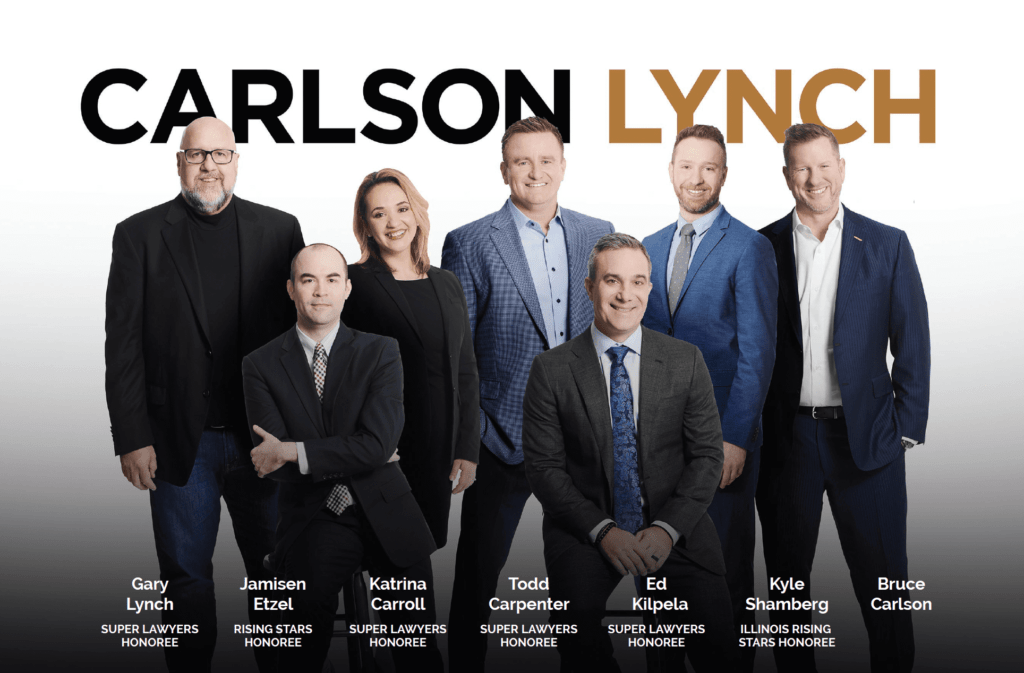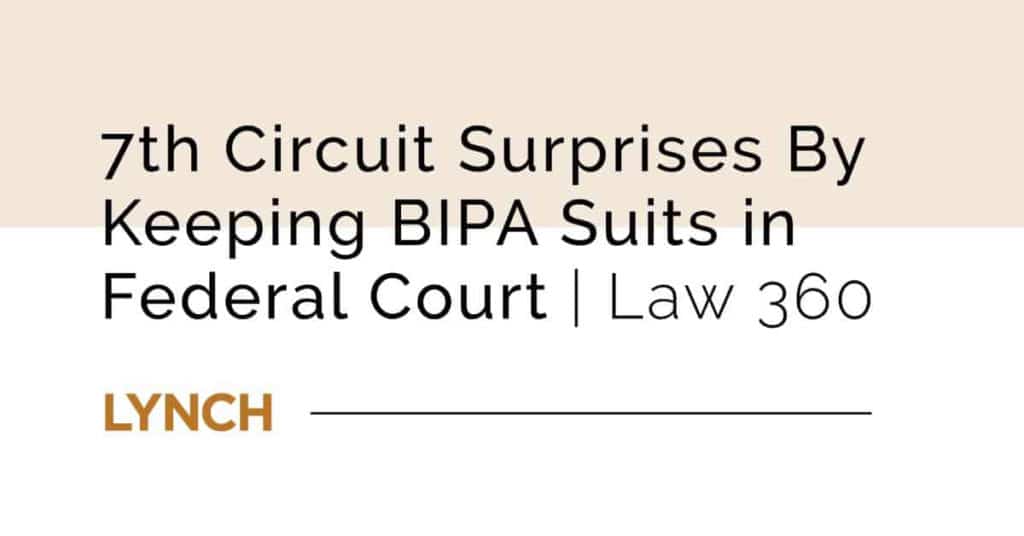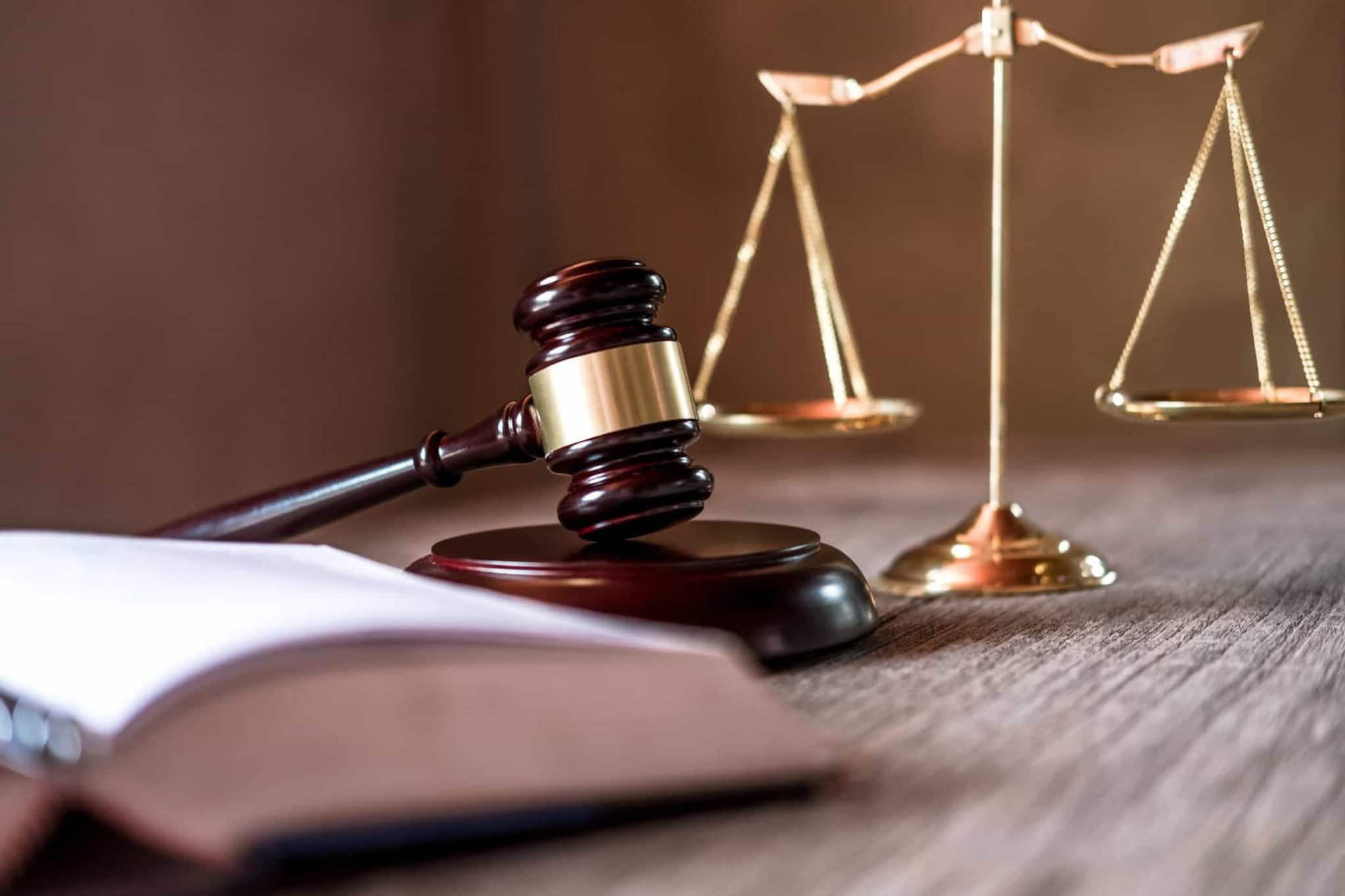JAMISEN ETZEL OF Lynch Carpenter APPOINTED AS INTERIM CO-LEAD COUNSEL IN COVID-19 TRAVEL INSURANCE LITIGATION
A federal judge in the Southern District of New York appointed Jamisen Etzel of Lynch Carpenter LLP to serve as interim co-lead counsel in litigation on behalf of consumers fighting travel insurance claim denials during the COVID-19 pandemic.
The Hon. John G. Koeltl of the United States District Court for the Southern District of New York granted a motion to appoint plaintiffs’ interim leadership counsel on January 29, 2021. The consolidated proceedings in New York include actions brought by consumers throughout the United States who allege that they purchased travel insurance policies from Generali Group and related entities.
The consumers were subsequently denied benefits or premium refunds when their travel plans were cancelled during the COVID-19 pandemic. In late 2020, the United States Judicial Panel on Multidistrict Litigation transferred all related federal suits against Generali to the Southern District of New York.
The other firms appointed as interim co-lead counsel in addition to Lynch Carpenter LLP include Potts Law Firm and Cafferty Clobes Meriwether and Sprengel LLP. Kirby McInerney was appointed liaison counsel. The executive committee includes Raizner Slania LLP, Sauder Schelkopf LLC, Scott + Scott Attorneys at Law LLP, and Zimmermann Reed LLP.
***
Founded in Pittsburgh in 2004, Lynch Carpenter has earned national acclaim for complex litigation for plaintiffs. Lynch Carpenter LLP is a leading law firm that specializes in cyber security, anti-theft, and consumer protection for more than 30 years. The firm currently has offices in Pittsburgh, Philadelphia, San Diego, Los Angeles and Chicago.
Lynch Carpenter Wins Consumer Standing Appeal in Ninth Circuit
Lynch Carpenter attorneys Jamisen Etzel and Kelly Iverson won a significant consumer rights ruling earlier this year from the United States Court of Appeals for the Ninth Circuit. The appeals court held in a published decision that the temporary loss of money is a sufficient “injury-in-fact” under Article III of the Constitution to confer standing on a consumer to file a federal lawsuit.
In the case, called Van v. LLR, Inc., Lynch Carpenter and its client brought suit against the clothing company LuLaRoe, alleging it had improperly overcharged Ms. Van and a class of similarly situated Alaska residents by including a “tax” on its invoices, where the purchases should have been tax free. After being sued by Lynch Carpenter and certain of its clients, but before Ms. Van’s suit was filed, LuLaRoe began refunding the improper charges directly to customer credit card accounts. Those refunds, however, did not credit its customers for all of their damages, nor did it pay compensation for the customers’ lost time value of their money.
The federal district court in Alaska, where Van’s suit was filed, dismissed the case based on lack of subject matter jurisdiction after finding that the consumers’ lost time value of money was “too little” to be a constitutionally recognizable harm conferring standing to sue. Lynch Carpenter appealed that decision, arguing that there is no minimum monetary loss threshold required to obtain standing, and that federal courts traditionally recognize invasions of a person’s possessory interests and the lost time value of money as concrete injuries under the Constitution.
The Ninth Circuit held oral argument on June 3, 2020, and Jamisen Etzel argued on behalf of Ms. Van. The appellate panel agreed with Lynch Carpenter’s position, and on June 24, 2020 reversed the lower court, finding that “[f]or standing purposes, a loss of even a small amount of money is ordinarily an ‘injury,’” and that “the temporary loss of use of one’s money constitutes an injury in fact for purposes of Article III.”
The decision is an important one for consumers because it confirms that they may go to court and obtain interest or other compensation when their money has been improperly held by others for significant periods of time.
You can read the full opinion at this link. The judges of the Ninth Circuit panel were Morgan Christen, Paul J. Watford, and Bridget S. Bade. Jamisen Etzel led the appellate briefing and oral argument. Kelly Iverson assisted in the appeal and serves as lead counsel in Lynch Carpenter’s cases against LuLaRoe.
Judge Appoints ‘Team of Rivals’ to Lead TikTok Privacy Class Action Lawsuits
 On Monday, a federal judge appointed lawyers to lead the privacy class actions against TikTok who previously accused each other of mishandling the litigation. They include co-lead counsel Ekwan How of Bird Marella and Katrina Carroll of Lynch Carpenter.
On Monday, a federal judge appointed lawyers to lead the privacy class actions against TikTok who previously accused each other of mishandling the litigation. They include co-lead counsel Ekwan How of Bird Marella and Katrina Carroll of Lynch Carpenter.
A Chicago federal judge has named a leadership group for privacy class actions against TikTok, in the wake of a selection process that often featured infighting among plaintiffs counsel.
Two groups of plaintiffs lawyers battled over leadership of the multi district litigation — about 20 class actions sent last month to U.S. District Judge John Lee of the Northern District of Illinois. One group, led by Katrina Carroll, of Lynch Carpenter in Chicago, and Jonathan Jagher of Freed Kanner London & Millen in Conshohocken, Pennsylvania, insisted they had reached a confidential settlement of the cases last month. The other, led by Megan Jones, a San Francisco partner at Hausfeld, and Ekwan Rhow of Los Angeles-based Bird, Marella, Boxer, Wolpert, Nessim, Drooks, Lincenberg & Rhow, raised concerns about the negotiations, in which they did not participate.
On Monday, Lee appointed How and Carroll as co-lead counsel, along with Elizabeth Fegan, of FeganScott, who supported Carroll’s group.
Lee, who previously has cautioned lawyers to work together and include all parties in settlement negotiations, did so again in his leadership order.
“The court anticipates that the plaintiffs’ leadership group will work by consensus and that plaintiffs’ counsel in particular will do everything possible to facilitate a consensus decision-making process,” Lee wrote. “It also is worth emphasizing that cooperation by and among all members of the plaintiffs’ leadership group is essential for the orderly and efficient resolution of this MDL.”
He ordered lead counsel to submit a proposal by Oct. 9 on how they plan to work together, with a status report due Oct. 30 that includes updates on the proposed settlement.
He set a virtual hearing for Nov. 4.
Carroll, in an email, said, “I look forward to proceeding in a coordinated effort for the benefit of our clients and the class.” How did not respond to a request for comment.
The defendant, TikTok Inc., is the developer of a popular app for creating short form videos on mobile devices. It got a reprieve from being banned in the United States on Sunday.
The battle for class action leadership comes as President Donald Trump, citing national security concerns, issued orders last month, one of which threatened to limit new downloads of TikTok in the United States by Sept. 20, later extended to Sept. 27, if it did not reach a real with a U.S. company.
TikTok, whose Chinese-based parent ByteDance announced plans to sell its U.S. operations to Oracle and Walmart, countered with its own lawsuit against the U.S. government. In that case, a federal judge in the District of Columbia struck down Trump’s order. The order, unsealed on Monday, found the International Emergency Economic Powers Act, cited in Trump’s order, exempted “informational materials” and “Personal communication” with no economic value, both of which are largely TikTok’s content.
In a related case, a federal judge in Pennsylvania on Sept. 26 rejected a motion for temporary restraining order brought by three TikTok users challenging trump’s order on constitutional grounds.
The fight among the lawyers in the privacy cases adds another unusual twist for TikTok. Those cases allege the video sharing app did not inform users, who include minors, that it was collecting their biometric data, in violation of the Illinois Biometric Privacy Act, which provides statutory damages between $1,000 and $5,000 per violation, as well as other computer and privacy laws.
Problems among the lawyers surfaced a few months before Aug. 4, when the U.S. Judicial Panel Multidistrict Litigation sent the cases to Lee’s courtroom.
Days after the transfer of the cases, TikTok and Carroll’s group informed Lee in an Aug. 16 joint status report that they had reached a class action settlement “in principle” following a mediation three days earlier. The settlement, which they anticipated filing in court Oct. 26 for preliminary approval, must remain confidential, they wrote, because of TikTok’s sale discussions.
The settlement didn’t involve everyone. Carroll, in her Sept. 8 for leadership, insisted that Rhow’s group, despite having conducted their own failed mediation talks with TikTok on April 6, refused to participate in the negotiations last month.
In her leadership application papers, she cautioned that a “forced marriage” with Rhow’s team “could derail the settlement and irreparably harm the class.”
Rhow, in court papers, has countered that TikTok chose to settle with a preferred group of plaintiffs lawyers, who shut his group out of negotiations. He insisted that TikTok had prohibited him from attending the mediation and, since then, has kept the settlement a secret.
His group raised concerns about the impact that the “destruction of crucial evidence” under Trump’s executive orders and TikTok’s imminent sale would have on the privacy class actions.
TikTok, which continued to support the settlement, took the unusual step of getting involved in the fight, praising Carroll’s group, who had negotiated the deal, which criticizing Rhow’s group for “overaggressive and excessive pleadings, emergency motions, and attempts to sabotage the efforts of other parties to resolve the litigation.”
Monday’s order created a plaintiffs’ steering committee made up of lawyers in both groups. In Rhow’s group, Jones and Amanda Klevorn, of Burns Charest, joined the committee. Support Carroll’s group were Jagher; Michael Gervais, of Susman Godfrey; and Albert Chang, of Bottini & Bottini.
Lee also appointed Shannon McNulty, of Clifford Law Offices, who was part of Rhow’s group as liaison counsel.
At a Sept. 24 hearing, Lee insisted that putting the dueling lawyers together would prevent fights down the road.
“Some in their briefs suggest that the court need not go this route and characterized such an approach as a ‘forced marriage,” he said, according to the transcript. “Others referred to this as a ‘team of rivals.’ I, myself, rather than referring to it in those terms, would like to think of it as an all-star team of sorts or an Olympic team, made up of individuals from perhaps different individual teams, but who are asked to come together to pursue the interests of all of the plaintiffs as a whole in this litigation."
Federal Judge Turns to Class Action Veterans to Lead Wawa Data Breach Litigation
The leaders are set to handle three tranches of litigation: one brought by consumers, another from financial institutions, and the last involving employees.
Lawyers who’ve been involved in a range of class actions, from the Equifax and Capital One data breach cases to drug marketing litigation, have been selected to lead a mass action against the regional convenience store chain Wawa.
U.S. District Judge Gene Pratter of the Eastern District of Pennsylvania on June 12 selected nine attorneys from Pennsylvania and New York to act as co-lead, class and liaison counsel in the proposed class action lawsuit over the hack announced late last year that exposed payment card information from Wawa users at potentially all of the company’s locations. The leaders are set to handle three tranches of litigation: one brought by consumers, another from financial institutions, and the last involving employees.
Specifically, Pratter appointed Sherrie Savett of Berger Montague; Roberta Liebenberg of Fine, Kaplan and Black; Benjamin Johns of Chimicles Schwartz Kriner & Donaldson-Smith; and Linda Nussbaum of Nussbaum Law Group as interim co-lead counsel for the consumer class action cases.
For the lawsuits brought by financial institutions, the judge appointed Gary Lynch of Lynch Carpenter; Christian Levis of Lowey Dannenberg; and Jeannine Kenney of Hausfeld as interim class counsel, with Mindee Reuben of Lite DePalma Greenberg also being appointed as interim liaison counsel for that group.
Pratter also appointed Donald Haviland of Haviland Hughes as interim class counsel for the employee plaintiffs.
According to Pratter, with the appointments, the attorneys are now tasked with developing and performing the discovery, coordinating meetings and calls, examining witnesses and acting as the primary point of contact between the parties and the court. Pratter also said the attorneys could apply for long-term leadership positions as well.
“The main criteria for such leadership will be willingness and availability to commit to a time-consuming project, ability to work cooperatively with others, professional experience in this type of litigation, and access to sufficient resources to prosecute the litigation in a timely manner,” Pratter said.
The appointment settles a dispute that had arisen between several firms over who should lead the class action.
In early January, Johns and Savett filed motions in the cases asking the court to consolidate the proposed class actions and have them appointed as lead counsel. The motions also asked the court to appoint attorneys from Ahdoot & Wolfson in Los Angeles; Federman & Sherwood in Oklahoma City; Philadelphia-based Kohn Swift & Graf; and New York-based firms Stull, Stull & Brody and Milberg Phillips Grossman.
Nussbaum, however, filed a response, saying the request by Johns and Savett was “premature” and that she also planned to move to be appointed lead counsel.
The first lawsuits over the data breach began to be filed Dec. 20—the day after Wawa’s CEO said in an open letter there had been a breach of the company card payment data. According to the letter, malware that had been active since March was discovered Dec. 10, and the company contained it by Dec. 12. The letter said the malware potentially exposed payment card information from customers at all Wawa locations, including credit and debit card numbers, expiration dates and names.
Attorneys said they appreciated being appointed to the position.
“We are pleased with the court’s order, and look forward to moving the case forward on behalf of the consumer plaintiffs,” Johns said.
In a statement published online, Kenney said, “I am honored to be serving with such talented co-counsel and look forward to obtaining relief for credit unions and other financial institutions injured by this data breach.”
Lynch and Reuben both declined to comment and Savett, Liebenberg, Nussbam, Levis and Haviland did not return a call seeking comment.
Lynch Carpenter NAMED LITIGATION DEPARTMENT OF THE YEAR BY THE
LEGAL INTELLIGENCER
The Legal Intelligencer is pleased to announce the 2020 Professional Excellence Award winners. We are delighted to highlight the great work and achievements across the full breadth of the Pennsylvania legal community.
Litigation Department of the Year (General)
Lynch Carpenter, LLP
“We are honored to be selected as the Litigation Department of the Year by the Legal Intelligencer. Congratulations to our incredible team of attorneys and staff who continuously pursue justice for the men, women and children around the country.” - Bruce Carlson and Gary Lynch
2020 SUPER LAWYERS' & RISING STARS' ANNOUNCED
 Each year Super Lawyers recognizes select attorneys from more than 70 practice areas who have attained a high degree of peer recognition and professional achievement. We would like to congratulate Lynch Carpenter Super Lawyers’ Gary Lynch, Katrina Carroll, Todd Carpenter and Ed Kilpela and Rising Stars’ Jamisen Etzel and Kyle Shamberg.
Each year Super Lawyers recognizes select attorneys from more than 70 practice areas who have attained a high degree of peer recognition and professional achievement. We would like to congratulate Lynch Carpenter Super Lawyers’ Gary Lynch, Katrina Carroll, Todd Carpenter and Ed Kilpela and Rising Stars’ Jamisen Etzel and Kyle Shamberg.

At Lynch Carpenter, our team has been raising the level of discussion, debate and change towards justice in this country for more than thirty years.
“Our team fights for justice every day. We continue to be a voice for those who have been silenced. Congratulations to our team members selected as this year’s Super Lawyers* and Rising Stars** honorees.” -Bruce Carlson and Gary Lynch
Pictured from left to right: Gary Lynch*, Jamisen Etzel**, Katrina Carroll*, Todd Carpenter*, Ed Kilpela*, Kyle Shamberg**, Bruce Carlson
7th Circ. Surprises By Keeping BIPA Suits In Federal Court
 Law360 | May 6, 2020 | Celeste Bolt
Law360 | May 6, 2020 | Celeste Bolt
The Seventh Circuit significantly changed the landscape of biometric privacy litigation Tuesday when it held that federal courts can hear claims over whether defendants violated Illinois’ landmark biometric law by collecting such data without informed consent.
Its ruling answered a question that had loomed large over the booming crop of Illinois Biometric Information Privacy Act lawsuits — and come out differently than many federal district courts that have booted BIPA suits as alleging mere procedural violations without harm.
Attorneys from both the plaintiff and defense bars say they’re relieved to have an answer to a standing fight that forced them into what Chief Judge Diane Wood referred to as a “role reversal,” with companies accused of violating the law arguing federal standing existed when plaintiffs said otherwise.
The “bombshell” decision could even prompt input from the nation’s top court as the Seventh Circuit’s ruling deepens a circuit split on the issue, said John M. Fitzgerald, a Chicago-based partner at Tabet DiVitto & Rothstein LLC and author of a recently published book on BIPA.
A panel of the appellate court held Tuesday that former Compass Group USA Inc. employee Christine Bryant alleged more than a mere procedural violation when she claimed the company failed to disclose its intentions before collecting her biometric information through a vending machine at work.
Compass’ alleged failure to disclose deprived Bryant of substantive information that she was legally entitled to, and prevented her from giving Compass the type of informed consent BIPA requires, which is a concrete and particularized injury that establishes standing, the panel said.
That finding is in line with the Ninth Circuit’s similar ruling in Patel v. Facebook Inc, in which it found Facebook’s alleged BIPA violations constituted an injury-in-fact, but marks a departure from the Second Circuit’s conclusion in Santana v. Take-Two interactive Software Inc, in which the court held that plaintiffs lacked Article III standing without alleging private data could be disseminated or misused.
“If I was Ms. Bryant, I’d file a certiorari petition on this issue,” Fitzgerald told Law360. “It affects a very large number of lawsuits all across the country, and we hav ea clear circuit split of Article III standing.”
Much-Needed Clarity
The Bryant ruling makes BIPA standing requirements for federal court consistent with those for Illinois state court, and the Seventh Circuit’s reasoning is sound give that the BIPA law is somewhat unorthodox, said Todd Rowe, a partner at Tressler LLP.
“Fundamentally, because this statute is so unique, [that is] why we’re seeing this struggle,” Rowe said. “ultimately, I think the Seventh Circuit had to go there.”
Most privacy laws require some sort of breach, or real-world harm, and BIPA is unique to the extent you don’t need that breach, Rowe said.
The Illinois Supreme Court in 2019 determined that a mere violation of the state’s biometric privacy law is enough to confer standing without proof of actual harm in Rosenbach v. Six Flags.
“The failure to give notifications is the damages. The damages are almost built in,” he said. “State courts had it right from the start.”
Through the ruling may seem like more of a victory for defense attorneys who would prefer to litigate these cases in federal court, it also comes as a relief to plaintiffs’ attorneys like Lynch Carpenter LLP partner Katrina Carroll, who has feared the suits could go on for months in one forum only to have a judge decide it’s not the right court to hear the case.
“We’re thrilled we have clarity now and know where we can proceed with these cases,” she told Law360. “Federal court is the place to be, and we’re comfortable litigating there.”
Before the Seventh Circuit weighed in, plaintiffs were finding themselves in a “very precarious situation,” Caroll said.
“As [a plaintiff], I’m not going to stand up in front of a federal court and argue that I don’t have the standing to be there,” she said.
Fitzgerald agreed that it feels “counterintuitive” to describe Tuesday’s ruling as a win for the defense bar, even though they’re been in a position where they must argue their opponents’ claims have standing to stay in or move to federal court.
“it’s interesting that this victory for the defense bar occurs in the context of a court saying that violations fo BIPA do create injuries-in-fact that are sufficiently concrete to create Article III standing,” Fitzgerald said.
A ‘Strategic Option’ for Defense Attorneys
To Benesch Friedlander Coplan & Aronoff LLP defense attorney Mark Eisen, the Bryant decision was somewhat unexpected, given that district courts have by and large found similar claims lacked Article III standing and, based on prior Seventh Circuit authority, related to the collection of personal information.
“This decision did not really make an effort to separate those decisions from the district courts or the decision from the Second Circuit with any significant analysis, maybe because the Seventh Circuit views biometrics being treated somewhat differently,” Wisen said.
As a practical matter, plaintiffs in BIPA cases aren’t alleging something wrong was done, he said.
“They’re saying, ‘I knew what I was doing, but you should have given me certain information before I did that,” Eisen said. “To find that was enough under [Spokeo Inc. v. Robins], I think is fairly unexpected. But we’ll take it.”
The decision subjects BIPA cases— which are often brought on behalf of a putative class — to a more stringent analysis under Federal Rule of Civil Procedure 23, which governs class actions, and brings a strategic option to the table that many plaintiffs’ lawyers may have been looking to avoid, he said.
For example, the Seventh Circuit has taken a more defense-friendly view of union issues in the BIPA context, where some state authority hasn’t, Eisen said.
“It seems to be one of those relatively rare circumstances where the defense is certainly benefiting from the Seventh Circuit’s guidance on this, which has not always been defense-friendly,” he said.
Duty to Public Vs. Individuals
While the Seventh Circuit found Bryant’s proposed class claim under Section 15(b) of BIPA — which requires, among other things, a written release before biometric information is collected — shouldn’t have been sent back to state court, it found she lacked standing to pursue her claims under Section 15 (b) of the statute, which requires a publicly available data public retention schedule and guidelines for permanently destroying biometric information.
The court held Compass’ duty under that section of the statue is to the public generally, not the specific individuals whose biometric information it collects, and Bryant alleged no particularized harm for the violation of that aspect of BIPA, the panel said.
But it was a distinction Fitzgerald found surprising, given the purpose of the laws as a whole, he said.
“15(b) and 15(b) were generally intended to protect the same rights. It’s certainly a surprising element of the ruling,” he said.
Rowe, however, said it makes sense given that the opinion was largely driven by the need to get Bryant’s consent or the opportunity to consent.
Carroll agreed, saying the court concluded that if Bryant had all the relevant information, she might have chosen to buy snacks from Compass’ biometric vending machines.
“That to me is what swayed them… as opposed to the general injury to the public at large,” she said.
And while the distinction does raise the question of whether to pursue an alleged Section 15(a) violation separately in Illinois state court, where a crafty plaintiff could attempt to make a “removal proof” claim, it’s not something Carroll said she would explore.
“If there’s now a recognition that the injuries under 15(b) are concrete and particularized… and plaintiffs can seek redress for them, that’s what we’re more interested in,” she said.
Law360's Benefits Editorial Advisory Board
Law360 announced the members of its 2019 Benefits Editorial Advisory Board.
“The purpose of the editorial advisory board is to get feedback on Law360’s coverage and gain insight from experts in the field on how best to shape future coverage.”
Lynch Carpenter attorney Edward W. Ciolko was named a member of this years’ board.
“Ed Ciolko specializes in federal statutory claims involving mismanagement of pension funds and fees (ERISA), violation of real estate transaction protections (Real Estate Settlement Procedures Act/discriminatory & predatory lending), antitrust market monopolization/generic drug blockage and overtime/worker misclassification claims (Fair Labor Standards Act) as well as state fiduciary breach, student predatory lending and insurance/reinsurance related actions.”

 Law360 announced the members of its 2019 Benefits Editorial Advisory Board.
Law360 announced the members of its 2019 Benefits Editorial Advisory Board.
“The purpose of the editorial advisory board is to get feedback on Law360’s coverage and gain insight from experts in the field on how best to shape future coverage.”
Lynch Carpenter attorney Edward W. Ciolko was named a member of this years’ board.
“Ed Ciolko specializes in federal statutory claims involving mismanagement of pension funds and fees (ERISA), violation of real estate transaction protections (Real Estate Settlement Procedures Act/discriminatory & predatory lending), antitrust market monopolization/generic drug blockage and overtime/worker misclassification claims (Fair Labor Standards Act) as well as state fiduciary breach, student predatory lending and insurance/reinsurance related actions.”
Federal Court Rules That Civil Rights Claims Against Uber Must Be Heard in Court
Ruling comes after Uber tried to avoid its legal responsibility to provide transportation accessible for all
 PITTSBURGH, PA (November 13, 2019) – Yesterday, a federal court in Pittsburgh ruled that plaintiffs suing Uber for failing to provide transportation accessible to people with disabilities cannot be forced into arbitration and must have their claims heard openly in federal court.
PITTSBURGH, PA (November 13, 2019) – Yesterday, a federal court in Pittsburgh ruled that plaintiffs suing Uber for failing to provide transportation accessible to people with disabilities cannot be forced into arbitration and must have their claims heard openly in federal court.
Filed on June 11, 2019, the lawsuit seeks modifications to Uber’s policies and practices to ensure that the company makes wheelchair-accessible vehicles readily available to Pittsburgh riders who need them. Plaintiffs do not seek monetary damages.
“We filed this lawsuit to ensure that Uber and other ridesharing companies provide transportation that is accessible to all, including people with disabilities,” said Disability Rights Advocates staff attorney Melissa Riess and Lynch Carpenter LLP Founding Partner R. Bruce Carlson. “Facing a number of accessibility lawsuits around the country, Uber has repeatedly tried to prevent these claims from being heard in court to avoid their legal obligation to provide accessible transportation. This ruling reinforces that the right to accessible transportation is a civil right, and it cannot be denied to our clients or anyone else.
“Plaintiffs are not seeking monetary damages. This suit is not about money. It’s about ensuring an inclusive transportation system for all Pittsburghers.”
The ruling means that the plaintiffs can proceed in federal court and have their claims heard under federal civil rights laws – allowing the case to proceed on the plaintiffs’ claims of systemic discrimination by Uber against people with disabilities.
Drawing on previous rulings in similar cases, the court rejected as “meritless” Uber’s novel argument that people who have not downloaded Uber’s app or signed up to its terms of use could be forced into arbitration and upheld the basic legal principle that someone cannot be bound by a contract they did not agree to.
In addition to the case filed against Uber in Pittsburgh, DRA has filed cases against Uber in New York and California for their failure to serve riders who use wheelchairs. DRA has also filed a case against Uber’s competitor Lyft in California. These cases are critical to protecting the rights of wheelchair-users throughout the country. More background on the case is available here.
# # #
About Disability Rights Advocates
With offices in New York and California, Disability Rights Advocates is the leading nonprofit disability rights legal center in the nation. Its mission is to advance equal rights and opportunity for people with all types of disabilities nationwide. DRA represents people with all types of disabilities in complex, system-changing, class action cases. DRA is proud to have upheld the promise of the ADA since our inception. Thanks to DRA’s precedent-setting work, people with disabilities across the country have dramatically improved access to education, health care, employment, transportation, disaster preparedness planning, voting, and housing. For more information, visit dralegal.org.
About Lynch Carpenter LLP
Lynch Carpenter, LLP is a national class action firm which currently has more than 20 lawyers spread across offices in Pittsburgh, San Diego, Los Angeles, and Chicago. Since 2010, the firm has dedicated significant resources to litigation on behalf of individuals with disabilities. The firm is committed to pursuing impactful cases that advance the interests of the disabled community on the largest possible scale. Lynch Carpenter also regularly litigates class actions involving data breach, privacy, consumer protection, and wage and hour violations
Ruling comes after Uber tried to avoid its legal responsibility to provide transportation accessible for all
 PITTSBURGH, PA (November 13, 2019) – Yesterday, a federal court in Pittsburgh ruled that plaintiffs suing Uber for failing to provide transportation accessible to people with disabilities cannot be forced into arbitration and must have their claims heard openly in federal court.
PITTSBURGH, PA (November 13, 2019) – Yesterday, a federal court in Pittsburgh ruled that plaintiffs suing Uber for failing to provide transportation accessible to people with disabilities cannot be forced into arbitration and must have their claims heard openly in federal court.
Filed on June 11, 2019, the lawsuit seeks modifications to Uber’s policies and practices to ensure that the company makes wheelchair-accessible vehicles readily available to Pittsburgh riders who need them. Plaintiffs do not seek monetary damages.
“We filed this lawsuit to ensure that Uber and other ridesharing companies provide transportation that is accessible to all, including people with disabilities,” said Disability Rights Advocates staff attorney Melissa Riess and Lynch Carpenter LLP Founding Partner R. Bruce Carlson. “Facing a number of accessibility lawsuits around the country, Uber has repeatedly tried to prevent these claims from being heard in court to avoid their legal obligation to provide accessible transportation. This ruling reinforces that the right to accessible transportation is a civil right, and it cannot be denied to our clients or anyone else.
“Plaintiffs are not seeking monetary damages. This suit is not about money. It’s about ensuring an inclusive transportation system for all Pittsburghers.”
The ruling means that the plaintiffs can proceed in federal court and have their claims heard under federal civil rights laws – allowing the case to proceed on the plaintiffs’ claims of systemic discrimination by Uber against people with disabilities.
Drawing on previous rulings in similar cases, the court rejected as “meritless” Uber’s novel argument that people who have not downloaded Uber’s app or signed up to its terms of use could be forced into arbitration and upheld the basic legal principle that someone cannot be bound by a contract they did not agree to.
In addition to the case filed against Uber in Pittsburgh, DRA has filed cases against Uber in New York and California for their failure to serve riders who use wheelchairs. DRA has also filed a case against Uber’s competitor Lyft in California. These cases are critical to protecting the rights of wheelchair-users throughout the country. More background on the case is available here.
# # #
About Disability Rights Advocates
With offices in New York and California, Disability Rights Advocates is the leading nonprofit disability rights legal center in the nation. Its mission is to advance equal rights and opportunity for people with all types of disabilities nationwide. DRA represents people with all types of disabilities in complex, system-changing, class action cases. DRA is proud to have upheld the promise of the ADA since our inception. Thanks to DRA’s precedent-setting work, people with disabilities across the country have dramatically improved access to education, health care, employment, transportation, disaster preparedness planning, voting, and housing. For more information, visit dralegal.org.
About Lynch Carpenter LLP
Lynch Carpenter, LLP is a national class action firm which currently has more than 20 lawyers spread across offices in Pittsburgh, San Diego, Los Angeles, and Chicago. Since 2010, the firm has dedicated significant resources to litigation on behalf of individuals with disabilities. The firm is committed to pursuing impactful cases that advance the interests of the disabled community on the largest possible scale. Lynch Carpenter also regularly litigates class actions involving data breach, privacy, consumer protection, and wage and hour violations
Jamisen Etzel of Lynch Carpenter Wins Affirmance of Class Action Trial Victory
The United States Court of Appeals for the Third Circuit ruled in favor of Lynch Carpenter’s clients and upheld a jury award of more than $4.5 million to a class of dancers who worked for the Penthouse Club in Philadelphia.
The case went to jury trial in March of 2018, and the jury’s award was then appealed by the Penthouse Club. Jamisen Etzel of Lynch Carpenter briefed the appeal and presented oral argument in front of the Third Circuit in Philadelphia on April 17, 2019.
The Third Circuit issued its opinion on August 30, 2019, affirming “across the board” the jury’s $4.5 million verdict for unpaid minimum wages and unjust enrichment under Pennsylvania law. The court also confirmed the district judge’s decision in June 2014 that the dancers were in fact employees of the Penthouse Club and subject to the protections of the Fair Labor Standards Act and the Pennsylvania Minimum Wage Act.
Jamisen Etzel, a graduate of Duquesne University (magna cum laude 2008) and New York University School of Law (J.D. in 2011), represented the class of dancers throughout the pretrial and trial phases of the case, along with Lynch Carpenter Founding Partner, Gary Lynch, Esq., and Co-Counsel Gerald D. Wells, III of Connolly Wells & Gray.
Since joining Lynch Carpenter LLP in 2012, Mr. Etzel has argued in the Third, Fourth, and Eleventh Circuits, and assisted on briefs in the Second and Ninth Circuits and the Supreme Court of Pennsylvania. His appellate work has yielded reported decisions favorable to his clients, including on several matters of first impression. This is his fourth federal appellate victory on behalf of nightclub dancers. The previous cases are: Mickles v. Country Club, Inc., 887 F.3d 1270 (11th Cir. 2018), DeGidio v. Crazy Horse Saloon and Restaurant, Inc., 880 F.3d 135 (4th Cir. 2018), and Herzfeld v. 1416 Chancellor, Inc., 666 F. App’x 124 (3d Cir. 2016).
In 2019, Mr. Etzel was named a Rising Star by Super Lawyers.










